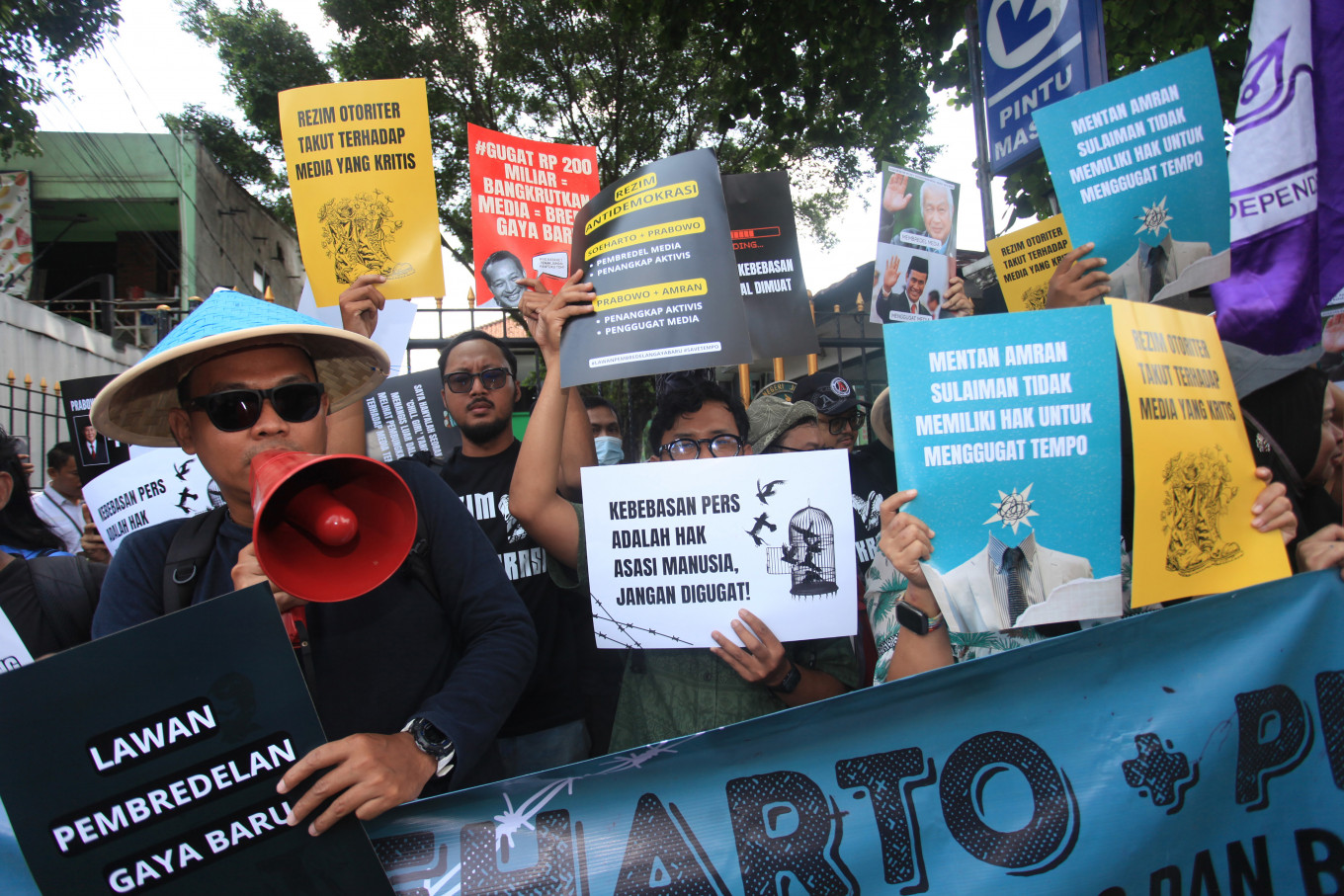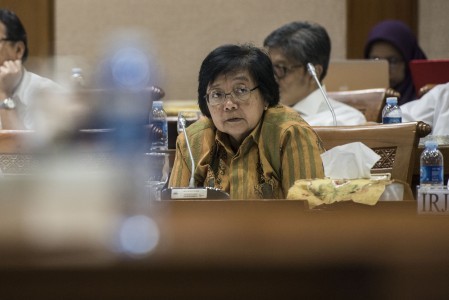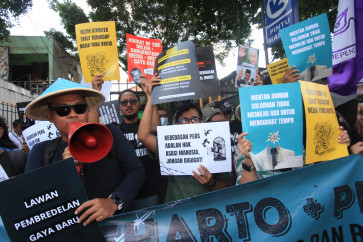Popular Reads
Top Results
Can't find what you're looking for?
View all search resultsPopular Reads
Top Results
Can't find what you're looking for?
View all search resultsAgriculture Ministry lawsuit threatens press freedom
Change text size
Gift Premium Articles
to Anyone
P
ress freedom in Indonesia has once again come under attack from the corridors of power, with the Agriculture Ministry becoming the latest to allegedly employ intimidation tactics in a dispute with a critical outlet that had already been mediated by the Press Council.
Civil society and government watchdogs descended upon the South Jakarta District Court on Monday in protest against the increasingly thin-skinned Prabowo Subianto administration, which has been more often relying on legal recourse when dealing with critical voices.
The Rp 200 billion (US$12 million) lawsuit against Tempo magazine revolves around an investigative report that unearthed unsavory practices in the state-led distribution of rice, at a time when the government was celebrating a record harvest season that President Prabowo touted as emerging proof that the country was well on its way to fulfilling its food security goals.
The Agriculture Ministry has accused Tempo of slandering the ministry’s hard work and “harming its credibility”.
But the media outlet has received broad public support, including from advocacy groups such as Amnesty International Indonesia and the Alliance of Independent Journalists (AJI), who rallied in solidarity at the court house as the trial entered its 10th session since the ministry filed its lawsuit in July. The court heard expert opinions on Monday testifying in favor of Tempo.
“If the court proceeds with this case, it risks undermining its own institutional integrity [because] any disputes related to the press must fall within the jurisdiction of the Press Council,” AJI Jakarta chapter chairman Irsyan Hasyim said, noting that the lawsuit might also serve as a precedent for similar cases against other outlets.
The case was first triggered by a poster published on Tempo’s Instagram and X profiles on May 16 titled “Poles-poles Beras Busuk” (Polishing Rotten Rice). The word busuk, according to the ministry, can to be considered libelous toward the policies of minister Amran Sulaiman. Tempo, meanwhile, insists the word can also mean “damaged” in the Indonesian language.



















